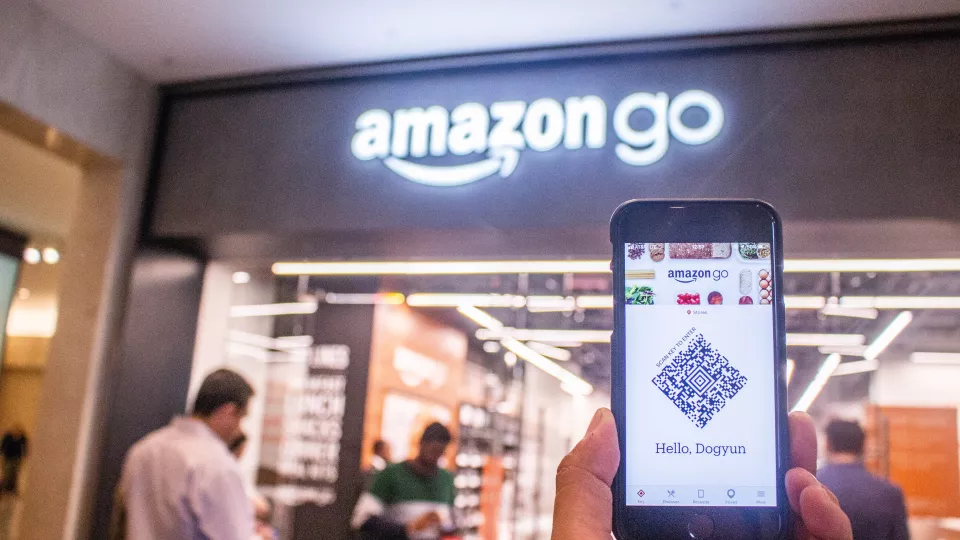Funded by the Swedish Retail and Wholesale Council, our project delves into the dynamics of data collection and trust between traders and customers. A survey conducted in 2020, involving over 2,000 Swedes, aimed to gauge public sentiments regarding how their personal information is utilised in retail. The goal was to understand whether consumers perceive the exchange of their data for discounts and offers as fair, ultimately contributing to the enhancement of customer trust in data-driven, personalised services.
2020: Digitisation and Data-Driven Innovation
The tumultuous year of 2020, marked by a pandemic, saw a surge in digital and data-driven e-commerce. Giants like Amazon made significant strides in the Swedish market, introducing innovations such as the checkout-free Amazon Go concept store. Simultaneously, traditional Swedish retailers explored unmanned stores, anonymised facial recognition, and novel ways to analyse purchasing behaviour within customer clubs. Amidst these advancements, our study not only examined existing data practices but also measured consumer attitudes towards emerging technologies.
A Lack of Balance in Data Exchange?
Retailers often argue that data collection and profiling lead to more relevant advertising offers. Our findings revealed that 58% of consumers find this justification for collecting data unreasonable. Over half (57%) did not think it is reasonable for companies to collect personal information in exchange for discounted goods and services. Support for facial-recognition via smartphone or in-store filming was even weaker, with only 1 in 10 deeming it reasonable for benefits or shopping experience improvements.
Strengthening Trust
The study underscored significant challenges for Swedish retailers in building trust regarding data collection and management. To address this, we recommend that merchants aspire to increase transparency by educating customers on how their data is used, but also avoid sharing data to third-parties when possible, since this is clearly a less trusted practice for consumers. The current practices of informing customers about cookies and user agreements seem insufficient in creating awareness.
A Path Forward: Clear Communication and Consumer Benefits
Retailers should explain to consumers the benefits of sharing their information, and avoid it if the consumers don’t see the benefit. At the moment, there is limited support for sharing personal data in exchange for tailored advertising or discounts, whether online or in physical stores. By establishing transparent data practices and empowering consumers with more control, retailers can cultivate trust, stimulate more fair product development, and create positive economic effects for both traders and consumers in the evolving retail landscape.
Original text by Stefan Larsson
Translation by Carys Egan-Wyer
DATA/TRUST: Trust-based personal data management in the digital economy, was a project led by Stefan Larsson. The project was financed by the Swedish Retail and Wholesale Council and involves a collaboration between Lund University and the think tank Fores. Report authors in addition to Stefan Larsson are Theodor Emanuelsson and Sara Thiringer, project assistants and students at Lund University. The data collection was carried out in collaboration with Novus.
Read the full report or the summary on the website of the Swedish Retail and Wholesale Council:
Read Tillit i den datadrivna handeln (pdf, in Swedish) - handelsradet.se
